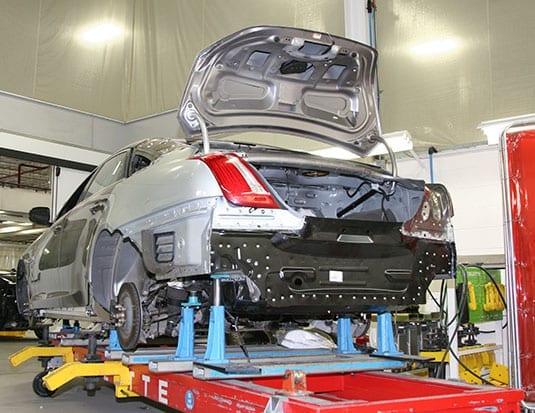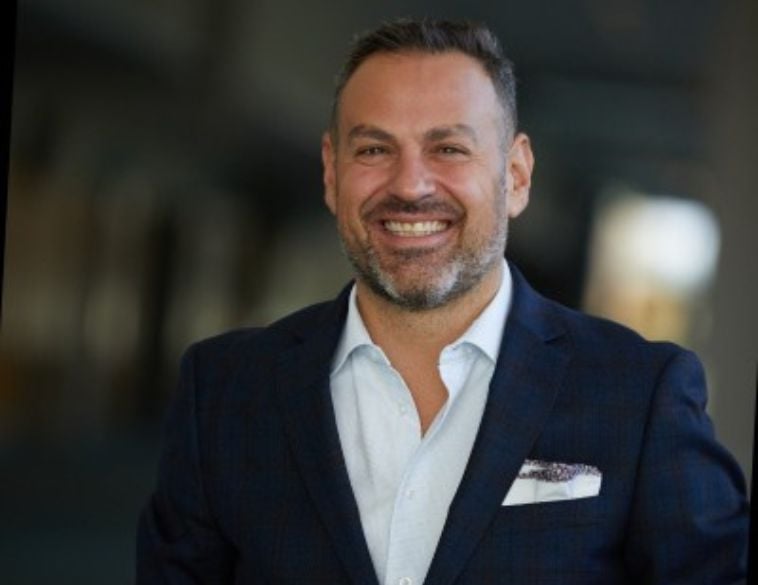Brand protection and piece of mind for all industry stakeholders.
Over the past 10 years, Dana Alexander has been upgrading his equipment and training his technicians in preparation for OE certification.
“We knew it was coming to Canada, it was just a matter of time,” says the owner of CSN – Dana’s Collision in Fredericton, N.B. “Our objective was to be ready as soon as we got an opportunity.”
Alexander’s shop is now a designated repair location for Honda and on its way to becoming a Toyota certified shop. “There’s definitely been an increase in business from Honda customers,” he says.
For Honda, the process took three months. “They want to make sure your technicians are trained, you have the proper equipment to do the job, you’re up to date on technology,” says Alexander.
Credentials mean business
Looking at the Canadian collision repair industry from 40,000 feet, Leanne Jefferies realized that the Assured Performance Network’s Certified Collision Care might be just what it needs. So she took a position as Vice President of Canadian Operations for the Assured Performance Network. “Our program is helping to improve the industry by increasing the technical repair capabilities as a whole,” she says. “OEM certification gives shops a push and the ability to earn a return on their investment.”
“They can then take those credentials and turn it into business through marketing. Shops have the ability for consumers to know that there’s a certified choice which is better for their collision repairs.”
Currently, the program is working with five manufacturers in the U.S., and has just launched in Canada with FCA for the Chrysler, Dodge, Jeep and Fiat brands. “There are many factors influencing OEM certification, such as the use of aluminum and high strength steel,” Jefferies says. “Cars are harder to repair, so shops really need to invest in equipment and training. OEM certification gives some guidance as to what’s needed to fix the car because the program is based on OEM requirements.”
In the U.S., automakers in the program are doing direct consumer marketing. “They’re spending millions of dollars to educate customers about why they should go to a certified body shop—It’s a pre-emptive rather than reactive position, so that when consumers have an accident, they already understand where they need to go.”
The program aims to have a certified shop in every community. “Our program is inclusive, there’s no limit to the number of shops that can join—the only limitation is whether they meet the criteria.”
Gap analysis
For Terry Allen, CEO and Co-Founder of Speedy Collision, certification just makes common sense. In fact, the Speedy franchise agreement has been rewritten to mandate OE certification with the Assured Performance Network’s Certified Collision Care.
“OEM certification gives shops the ability to earn a return on their investment.” — Leanne Jefferies, Vice President, Canadian Operations, Assured Performance Network’s Certified Collision Care
“We have 27 shops that are all undergoing certification,” Allen says. “It’s going to become the industry standard.”
Allen believes that insurance companies will raise the bar on minimum requirements for collision repair shops to be part of their direct repair programs as well as a liability perspective. “As vehicles become more and more sophisticated with technology, they need to be repaired and calibrated properly to OE specifications to stay safe,” he says.
When shops join the Speedy organization, they’re measured against a standard shop configuration and an optimal shop configuration. “Our configurations are mapped to Certified Collision Care’s business and technology requirements,” Allen explains. “We create a development plan for our shops so they know where they are and where they need to be. At the beginning, we build a gap analysis and then develop a business strategy towards getting the shop to the level it needs to be in order to be certified.”
The process is very pro-active; building the plan out for the shop and project managing it to ensure it is completed in a timely manner. On average, it takes three to six months to achieve certification.
Response has been great, according to Allen. “Everyone gets it,” he says. “In Alberta, the economy has had a downturn, but that gives you the opportunity to tool up and get certified during a slower time. When it does get busy, you’re ready for it. We see this as a tremendous marketing opportunity, and also raising the bar internally to deliver the quality and repairs to OE standards.”
Globalization
At Mirka, certification is key to ensuring global plants maintain consistent standards. “We want to bring standard operating practices to all plants,” says Yves Roy, National Sales Director at Mirka Canada. “It helps to streamline the distribution network and suppliers, as well as standardization of the process between plants.”
A company representative from Finland travels the world to understand what different auto manufacturers are looking for.
“What we produce are shop supplies, so we’re more driven by the processes,” says Roy. “It’s a very competitive arena, and we’re constantly challenged to outpace our competitors.”
“Everyone has the same challenge of dealing from country to country. The companies that will be able to interact globally will come out ahead of the game. Manufacturers have footprints in emerging markets—there’s a lot more interaction and globalization between them. It’s not just about the Canadian market, it’s what’s happening around the world because they all want standardization.”
Fix Auto Canada is a strong supporter of AIA Canada’s Canadian Collision Industry Accreditation Program (CCIAP). This has been designed to meet the demands of the Canadian collision industry by ensuring all OE specific requirements are met, from both an equipment and training perspective.
“While each OEM certification process is different, the CCIAP accreditation typically takes two to three months, and ensures that the repairer meets the standards developed by the vast majority of Canadian OEMs,” says Jean-Charles Dupuis, Senior Vice President, Chief Operations Officer at Fix Auto Canada. His long-term goal is to achieve CCIAP accreditation across all Canadian markets. “OEM-specific certification is a business decision that can be taken on a shop-by-shop basis, to compliment CCIAP accreditation.”
“The best option for the industry must provide the diversity and agility that we need to thrive and grow in the vast Canadian automotive landscape.”



